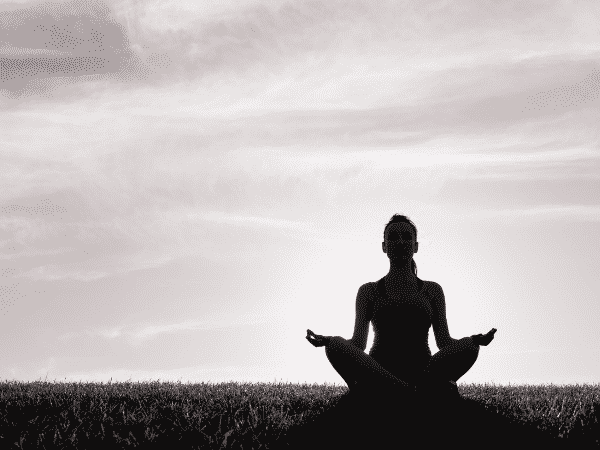
Rather than simply addressing the different facets of addiction on a medical level, Holistic Therapy, as its name implies, is a type of treatment for addiction that integrates different aspects of a person’s well-being on the level of both the mind and body. Some approaches even delve into the spiritual aspect of recovery.
Although it may be seen as something of a departure from conventional treatments for addiction, Holistic Therapy is actually used very often in conjunction with traditional methods. Rather than oppose one another, the two have the potential to work in harmony to bring out the best results for many patients.
What Exactly is Holistic Therapy?
Holistic therapy seeks to address the needs of the totality of a person; it aims for growth and recovery in both mind and body. They are usually an alternative therapy for drug addiction and mental illnesses.

Some examples of specific Holistic Therapy treatments are massage therapy, acupuncture, yoga, meditation, chiropractic treatment, and herbal therapy. Even nutrition and exercise may be incorporated into Holistic Therapy regimens.
Different types of specific treatments may address different things, and we all know that every person going through recovery will have different needs. However, in general, Holistic Therapy for addiction aims to build up both the mind and body for a more comprehensive recovery on multiple levels.
Holistic Therapy for addiction tends to help with withdrawal symptoms in many cases. It also helps address the emotional needs of people struggling with addiction. In many cases, certain Holistic Therapy approaches have helped patients get to know themselves more, understand their addiction better, and change their mindsets to healthier ones.
Many approaches also help people transition out of their bad habits by encouraging a healthier lifestyle, notably by encouraging the development of good practices in fitness and nutrition.
Specific Types of Holistic Therapy
Chiropractic Treatment
Chiropractors engage in the practice of adjusting patients’ backs and joints. These adjustments help in balancing the flow of chemicals and adjusting nerve fibers to improve various functions in the body. For patients recovering from addiction, it is notable for improving one’s focus and relieving anxiety.
Massage Therapy
The pressure put on the muscles and pressure points of the body relieves stress as well as improves mood. Relaxing the body aids in relaxing the mind as well. This in turn helps patients develop clearer minds to become more focused on their recovery. Many have been aided in adhering to their treatment by massage therapy.
Yoga
Yoga is a form of exercise that involves stretching, posture, and breathing. It also has a spiritual aspect that many people practice, involving meditation and concentration for the goal of connecting the mind, body, and spirit.

Yoga has helped many people (not limited to those recovering from addiction) improve their strength, flexibility, and endurance. Aside from improving the health of the body, it also helps build mental fortitude and increase self-awareness.
Getting to know oneself through yoga has been a fruitful experience for many. Additionally, yoga provides opportunities for reflective introspection and emotional development.
Acupuncture
Acupuncture is the practice of using very thin needles to stimulate specific points of the body. It is rooted in traditional medicine and may have a neurological basis. In patients battling addiction, acupuncture has helped with both cravings and withdrawal symptoms.
Aside from this, patients have also reported becoming more relaxed and even better sleep after receiving acupuncture therapy. Many people also turn to acupuncture to relieve chronic muscle or joint pain, augment recovery from injuries, and even treat stress as well as insomnia.
Meditation
Sometimes in conjunction with yoga, meditation offers great returns in becoming more self-aware. In understanding oneself and one’s addiction, meditation aids in the exploration of one’s own thoughts. People often develop and renew their determination to succeed in their recovery by meditating.

Even just a few minutes per day may be very helpful in strengthening willpower in adhering to treatment; many people are able to develop calmness and refine their thought processes through a consistent practice of meditation. Some people even report that meditation can help in the reduction of pain sensations.
There are numerous other types of Holistic Therapy, but most, if not all of them really aim for the same goal: integration of the mind and body on a comprehensive journey towards becoming healthier.
Even simpler types of regimens such as those that improve nutrition and fitness tend to help people get through their treatment with much more ease. Feeling better both physically and mentally may be of help to people in getting through rehabilitation.
Holistic vs. Medically-Assisted Therapy
Addiction is not only biomedical — it is also psychological. As with many other conditions that share these qualities, there is no one cure-all solution for addiction. Different people respond differently to different types of treatment. So the question of what type of treatment is best is quite difficult to answer. We know what works through research and experience. However, each person will respond best to a plan that is specific to their needs.

People turn to addiction for different reasons — addressing those reasons and helping the patient to overcome them is key in their success. As for addiction itself, there is little to suggest that addressing both physical and mental aspects could be detrimental in any way. For this reason, Holistic Therapy is not opposed to its traditional counterparts; in fact, they are often used in conjunction with one another.
Although the effectiveness of Holistic Therapy is quite difficult to prove scientifically, anecdotal evidence to support it is quite strong. Patients are able to grow in new ways and get to know themselves more through Holistic Therapy. For these reasons, Holistic Therapy can definitely be used as a complement to scientifically proven treatment regimens.
Recovery, Done Right
Finding the best therapy for you or your loved one is easier than you might think. There are a ton of ways to turn your life around, and we are there to help you. Here at Restore Health & Wellness Center, we’re determined to be a part of your recovery, your success story.
If you want to try out holistic therapy for addiction recovery, our team of professional healthcare workers will find the right program for you. We specialize in treating addiction with alternative therapies and finding the best way to help our patients live a long and meaningful life. Take the next step and call us at (888) 979-4570 or schedule a call with us by filling out this form. We are here to help.





